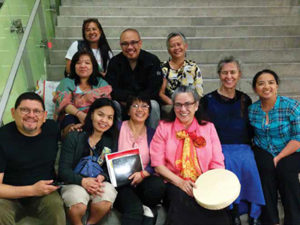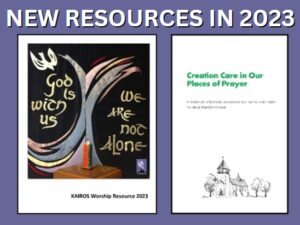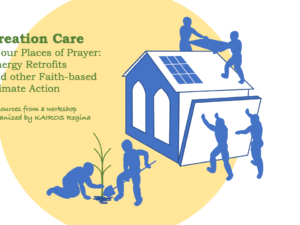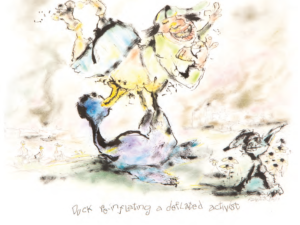Spirited Reflection: Knowledge and love

God does not care what we eat! This seems to be Paul’s message to the Corinthian church; a shocking statement from an ex-Pharisee! Paul begins his discussion of the food laws, an incredibly sensitive topic at the time, by contrasting knowledge and love. “Knowledge puffs up, but love builds up.”
With Paul, some believers are sure that God does not care what we eat. Others, often new believers, are struggling, wondering what happens to them when they eat food sacrificed to an idol. Are they ingesting that god into their body? Will that make them sick, or worse, kill them? And how does this relate to what is going on at The Lord’s Supper?
Still other believers, often with Jewish roots, see the topic through a more legalistic lens. The Jerusalem Council had agreed that Gentile believers should, like all other Jewish believers, refrain from eating food sacrificed to idols. And since that is the rule there is no room for debate— it is simply wrong.
Unfortunately, this struggle to hold knowledge and love together and maintain unity has not been resolved for us today. It is not difficult to see how our Christian communities are often divided in similar ways. Believers regularly see the more sensitive topics of our day through completely different lenses. So much so that the prospects of gathering at the table with each other seems impossible if not just wrong. The easy remedy to this uneasiness is to surround ourselves only with people who think like us…and this often means people who look like us, too. Paul, however, sees another way.
Each different type of believer above (the one free of the law, the one struggling with the law, and the legalist) is dealing only in the realm of knowledge, but knowledge on its own only serves to puff oneself or one’s group up. Knowledge without love is self-congratulatory and divisive: we know what is right and we are sure that others are wrong. Paul sees another way. Like Jesus before him, Paul sees people before he sees issues. Paul understands that where knowledge (even if it is correct!) can lead to pride and division, love can bring people back to the table. Paul sees people and understands that different journeys and backgrounds cause us to see the same topic through different lenses.
And because Paul is more concerned with unity and encouraging believers than he is with correct knowledge, he is able to see those who disagree with him as siblings and not as threats to some righteous order.
I have the privilege of working with college students. I often, only somewhat jokingly, tell people that I love working with this age group because in important conversations they are not simply trying to justify the decisions they have already made like the rest of us. They are open to new ways of thinking and seeing the world. This allows for safe and rich conversations. These students are not so encamped within their own particular set of beliefs that they see “the other” who thinks differently than them as a threat. These students are able to hold knowledge and love together and engage in meaningful conversations where both parties are open to being changed.
The work for justice always requires love if there will be movement within our communities. Without love the promotion of justice can too easily become divisive condemnation of people who don’t think like us. This
is hard work and requires incredible amounts of patience.
God does not care what we eat… but that does not mean we shouldn’t have care as we eat. The food laws are no longer interesting to Paul—eat, don’t eat, that’s up to you—but caring for a vulnerable person in the way we engage food is important. Caring for a vulnerable person as we seek to love whom Jesus loved is important.
True “knowing” and “love” are both incredibly intimate words. To really know someone involves love. And love, if it is not to be narcissistic, always involves appreciating the other who is different than us. As we seek for the unity that Paul calls us to in this text, may we engage with one another in a different way—a way rarely known to our self-focused world—a way filled with humility, grace and curiosity.
Tim Wood is a minister in the Christian Reformed Church in North America and the Campus Minister at The King’s University in Edmonton, Alberta. He represents the CRCNA on the KAIROS Steering Committee.
This reflection is excerpted from Gifts for Another Way, Epiphany Year B Resource for Justice Seekers, available through KAIROS.







